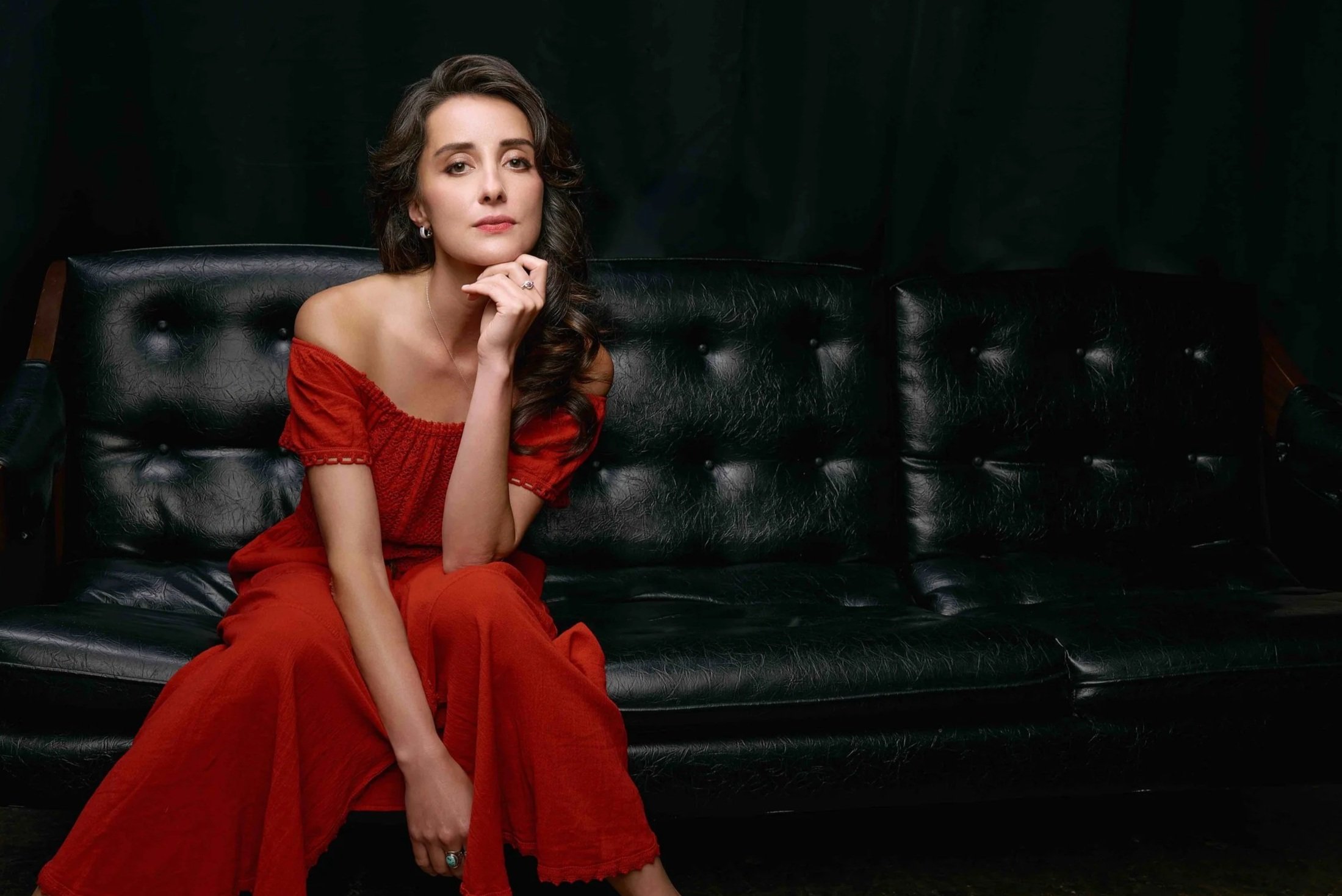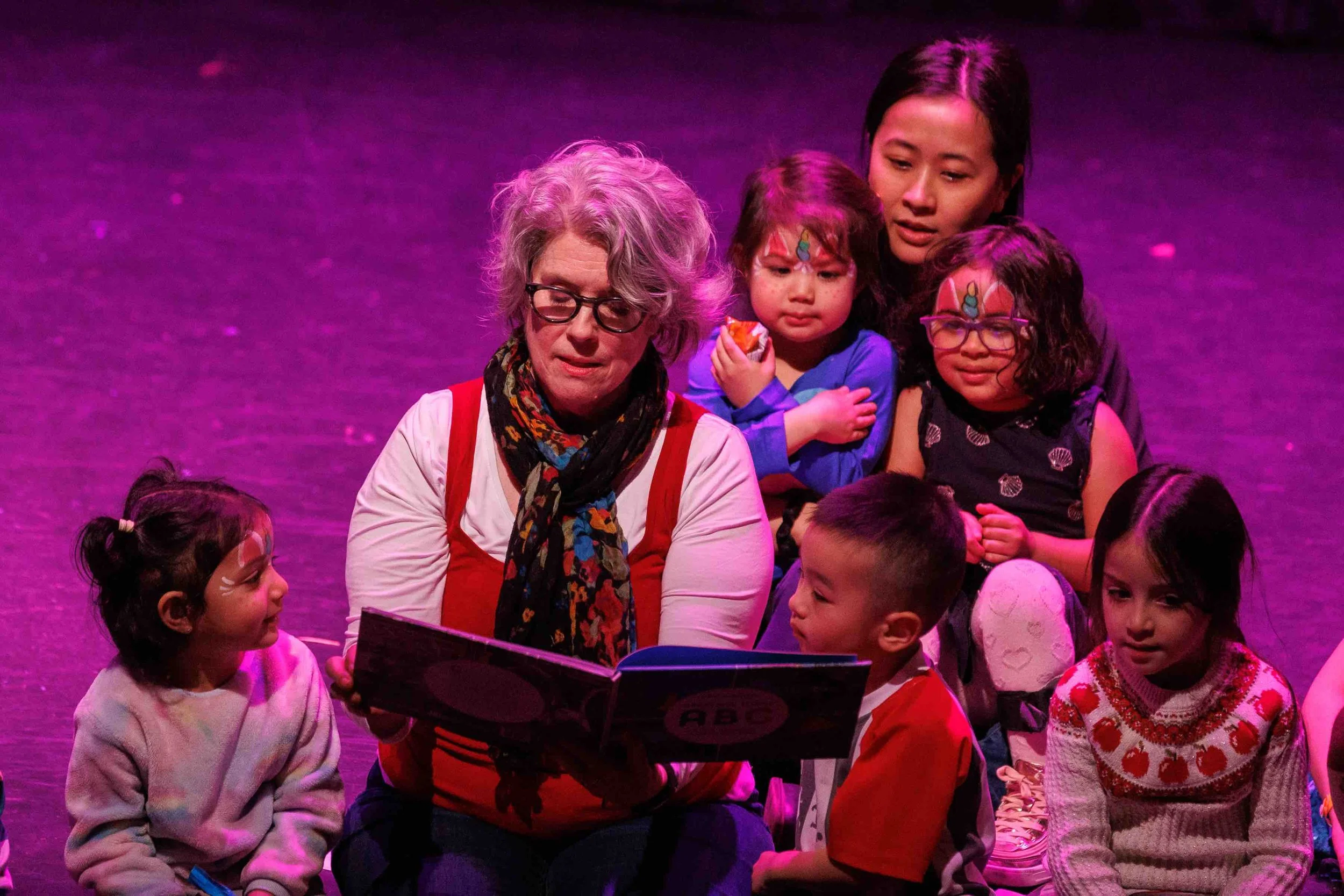Theatre review: Dil Ka offers a rare journey through queerness and the Pakistani-Canadian experience
Written by Lee Nisar, the show explores repression and tenderness through the eyes of a 26-year-old woman facing unwanted marriage
Dil Ka’s Janavi Chawla, Nimet Kanji, and Rami Kahlon. Photo by Emily Cooper
Ruby Slippers Theatre in association with Presentation House Theatre and the Blackout Art Society presents Dil Ka at Presentation House Theatre to March 31
“THE CONSTANT FEELING of debt”—that’s how Zahra describes her state when we first meet her. It’s an overwhelming sensation, a burden she feels towards her parents, family, and community, and one that seems impossible to fully repay. As the play unfolds, following the 26-year-old through a particularly stressful afternoon of cooking in her Pakistani-Canadian family home, this unshakeable sensation reaches a boiling point. Despite some hiccups, Dil Ka, which translates to “of the heart”, is undeniably heartfelt, letting us in on a sensitive, culturally rich, and rarely represented journey of self-discovery and acceptance.
The play adopts a confessional style that immediately draws us into the inner world of its tense and guarded protagonist. As she nervously prepares her mother’s chicken biryani recipe, Zahra reveals that it’s meant as a gift for a family of strangers who could potentially become her future in-laws. As a meeting arranged by her mother with one of many suitors looms, the young woman’s confidence in both her culinary skills and the idea of marriage begins to falter. Despite her attempts to suppress these feelings and fulfill the role of dutiful daughter, she trembles as she chops onions and dried apricots, sharing stories with the audience about her aunties who would spend hours cooking only to have the food go cold by the time they ate it, dreading a similar fate for herself.
Actor Talia VandenBrink does a valiant job of maintaining the character’s sense of panic (not entirely maintained by the script), as she shares reflections and confronts a burgeoning truth about herself. The family kitchen becomes both refuge and place of confinement for her. It’s where her disinterest in men and her emerging sexuality, alongside thoughts on her upbringing and her parents’ sacrifices, are intertwined with a heavy dose of guilt—different facets of herself she finds difficult to reconcile.
Alongside the heavy anxiety, this is also a funny show, featuring a versatile and enthusiastic cast who give the family a grounded sense of identity. Nimet Kanji as the mother is a particular joy. Remarking that “this is as relaxing as it gets!” she serves as the perfect contrast to the frazzled Zahra, displaying a level of nervousness and high-strung energy that rivals her daughter’s, but channelled into brilliant comedic timing. While occasionally falling into the stereotype of the overbearing, clueless parent solely focused on marrying off her daughter, she also displays genuine concern when sensing that Zahra is pulling away.
Everyone excels in their respective roles, like the quirky, benevolent, and patient dad, played by the charming Parm Soor. Then there’s Zahra’s hilarious and sassy sisters (Rami Kahlon and Janavi Chawla), who, despite being wrapped up in their own teenage angst, still manage to show genuine care for their older sister.
The show resonates most when it delves into a world portrayed as both isolating and repressed, yet also richly lived-in and tender. This is particularly evident when Zahra reminisces about her family or her best friend Jaz (Tanaz Roudgar). These scenes are often enhanced by beautiful projection design on the set’s hanging windows, which break up the home and dissolve temporal and spatial boundaries, blurring the seemingly irreconcilable parts of Zahra’s identity. For instance, Zahra dissects her deep emotional connection with the Bollywood film Devdas, recalling playful arguments with her little sister over who gets Shah Rukh Khan, an attempt to conceal the growing attraction she feels towards Aishwarya Rai during her musical performance in a temple. Through the retelling of this memory, the play beautifully starts to connect the protagonist’s spirituality with her sexuality.
Given that much of the show revolves around Zahra’s internal struggles expressed through exposition-heavy dialogue, we appreciate the texture and vitality that these moments add to its lead character. With Dil Ka, writer Lee Nisar and director Tricia Trinh bring us crucial and greatly needed representation through a sincere and empathetic lens, whose depiction of its lead character’s queerness stands out as particularly tender, beautiful, and raw. ![]()













